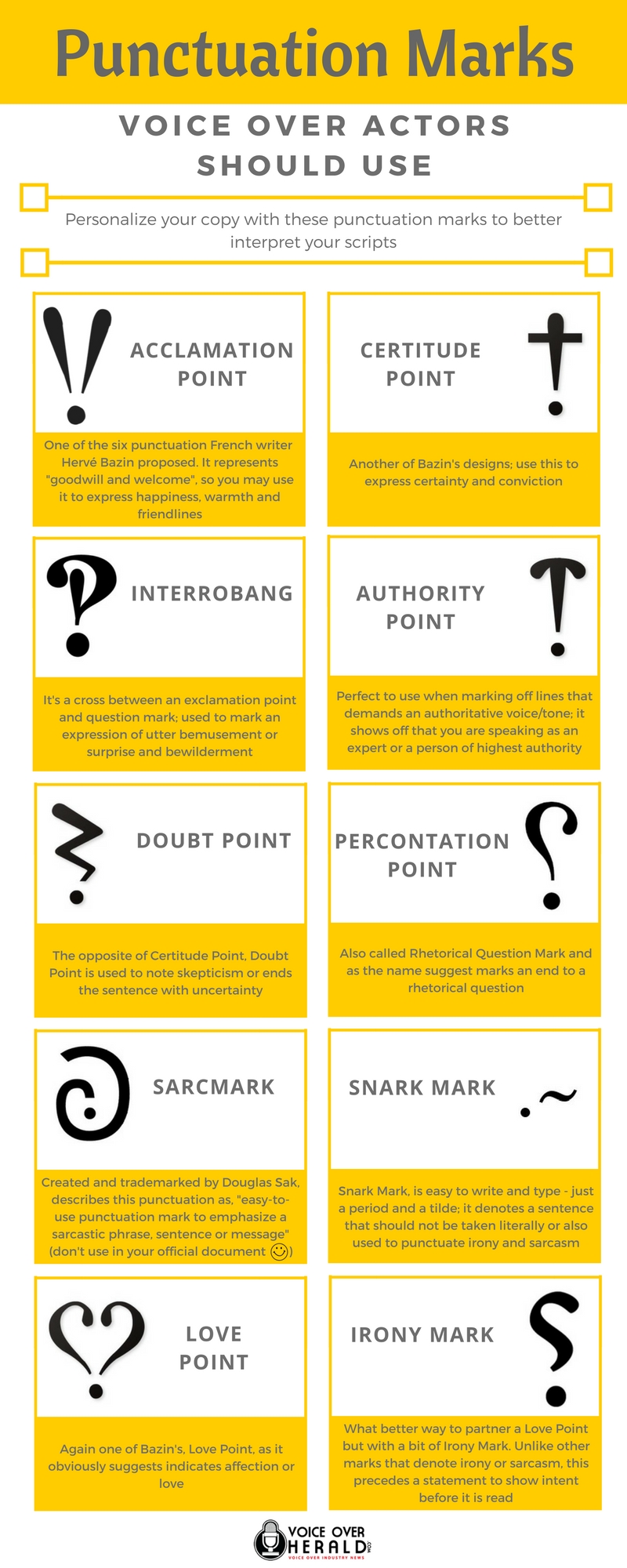How Punctuation Marks Help You Read Voice Over Scripts Better
A well-written script makes any recording session for a voice over actor so much easier. And when we say well-written, that also includes correct punctuation.
Punctuation is important for voice overs as it works as an aid in reading, phrasing, and in the overall interpretation of the script. Unfortunately, not all the scripts you receive are well-made, so it may need a bit of tweaking in the spelling, grammar and/or punctuation.
You may need to work with the client if there are any concerns with the grammar (as you can’t just make major changes to the script without letting them know), but correcting the spelling and punctuation is something you can easily do.
Here are some basic rules in using punctuation marks ₁:
Period – or full stop for the British, marks the end of a logical and complete thought, as long as it is not an interrogative or exclamatory sentence
Comma – separates phrases, words, or clauses in lists; it can also be used to emphasis an item, point or meaning
Exclamation point – is used to express exasperation, astonishment, or surprise, or to emphasise a comment or short, sharp phrase.
Question mark – marks the end of all direct questions
Colon – used to expand on the sentence that precedes it, often introducing a list that demonstrates or elaborates whatever was previously stated
Semicolon – used to join phrases and sentences that are thematically linked without having to use a conjunction, and it is also instead of commas to separate the items in a list when the items themselves already contain commas
Quotation mark – used to cite something someone said exactly
But as you go through your script, you can also add some personal marks that can help you interpret and deliver the directions better.
Commas – as we mentioned earlier, commas are used to emphasise an item, point or meaning. Add commas to the script where you feel there should be a natural pause.
Highlight – whether you are using a Word document or printed out scripts, highlight words that needs careful pronunciation – jargons, company terminologies, or difficult to pronounce words. Make sure you check back with your client to get the correct pronunciation.
Underline – another way to show emphasis for a word, phrase or even sentences is by underlining it.
Greater/Less than signs – use this to mark parts of the script where you need to slow down or speed up your pace
Virgule – or “staff” and “rod”, you may use slash (/) for short pauses, and dash (–) for longer pauses
There are also lesser known, yet very interesting marks that you can add to your list of punctuation marks to use. These punctuation marks express more than the usual stops and emphasis – they represent different feelings that you can use as a guide in interpreting your script.
Do you use special marks to help you read your scripts better? Share with us your tips.
Source: www.ef.com


